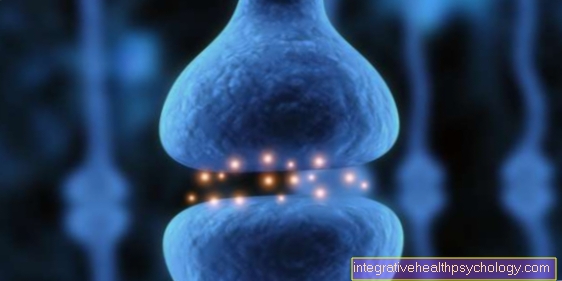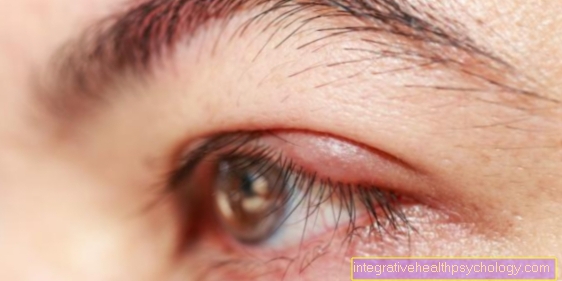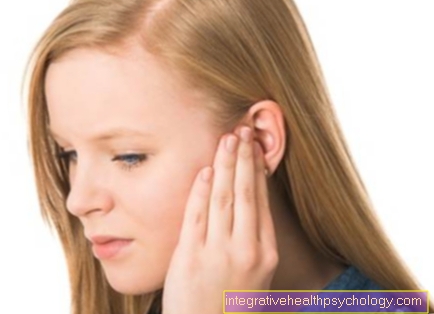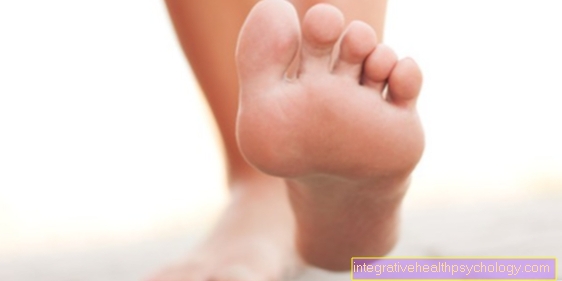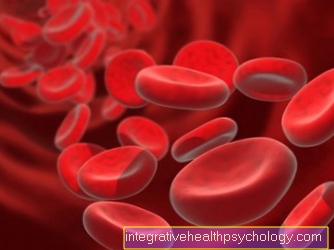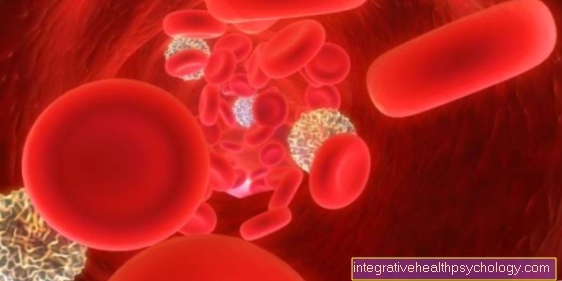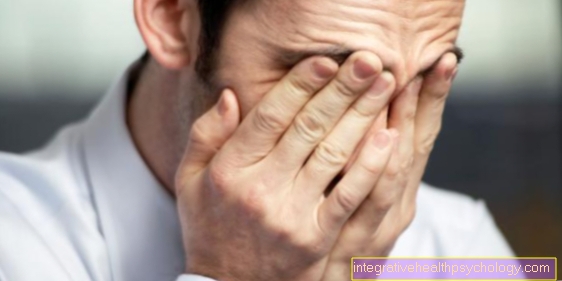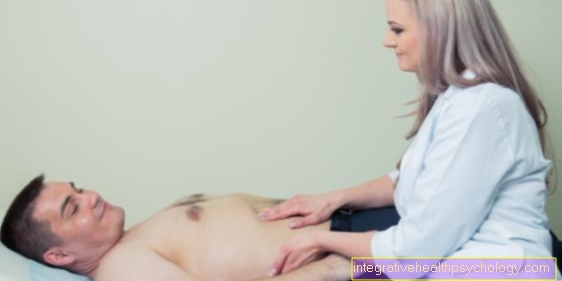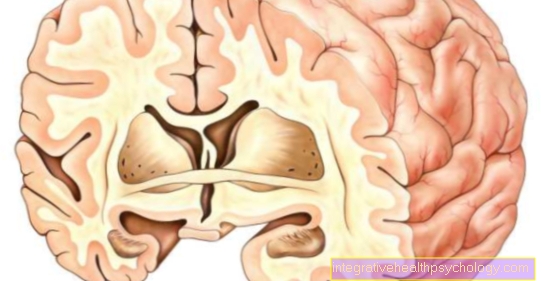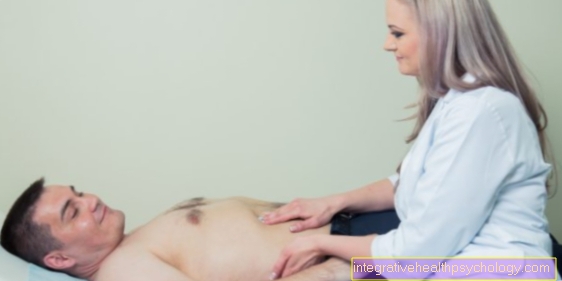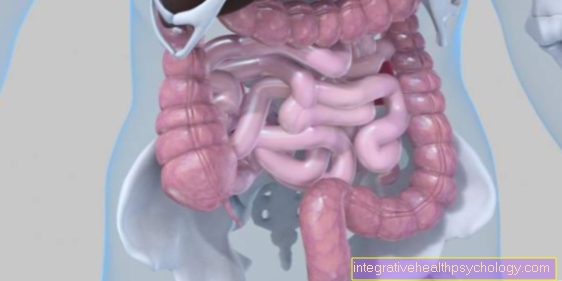What are the symptoms of bipolar disorder?
Below are the main symptoms of bipolar disorder. If these occur in large numbers, bipolar disorder can be expected. For this, a doctor should be consulted immediately to avoid deterioration. A bipolar disorder occurs in two forms, a distinction is made between a manic phase and a depressive phase.
For general information on this topic, we recommend our website: Bipolar Disorder - A life between high spirits and depression

Symptoms of the manic phase:
-
An overall exaggerated feeling of elation (euphoria)
-
Clear inner restlessness and excitement
-
Increased activity
-
Increase in performance and creativity
-
Reduced need for sleep
-
Significantly increased self-confidence
-
Lack of distance in social interaction
-
Loss of reality and increased risk behavior
Symptoms of the depressive phase:
-
Melancholy and depressed mood
-
Withdrawal from social contacts or even isolation
-
Lack of drive and lack of ideas
-
Concentration and attention disorders
-
Increased need for sleep in the sense of a sleep disorder
-
Self-doubt
-
Loss of self-esteem
-
Suicidal thoughts
Mania:
High spirits:
The feeling of elation is also known as affectivity. From this, the bipolar disorder is assigned to the “affective disorders”. The high mood that accompanies a manic phase is usually unfounded and usually seems exaggerated to outsiders. It expresses itself in a good mood and a constant cheerfulness.
Many of those affected show a clear overestimation of their own abilities.
People in the manic phase usually do not feel sick, guided by this exhilaration, and see no reason for medical-psychological treatment.
Here it is recommended that you also read our main page on mania and therapy for mania:
- What is a mania?
- Therapy of a mania
Irritability:
Instead of or in addition to the high mood, some sufferers develop a distinct irritation, which can end in increased aggressiveness. This is known as "irritable mania".
The transition between these two feelings can take place within a few seconds, for example when a person receives contradiction from familiar.
A pronounced irritation usually arises when outsiders point out the need for therapy and a visit to a psychologist.
Can you recognize aggressiveness in you or in people around you, but this cannot be explained? At this point you can also read our article: Aggression in depression
Accelerated thinking:
The thinking of people in the manic phase is often described as quick and erratic. This phenomenon is summarized as a flight of ideas. Affected people continually have new ideas, but are quickly distracted by external stimuli or new thoughts.
The accelerated thinking is often reflected in a faster way of speaking. However, there are often no direct connections between the thoughts and what is expressed in language, which can be very confusing for outsiders.
If this symptom is extreme, one speaks of a confused mania, which is still associated with a lack of orientation and cognitive deficits.
Drive increase:
The increase in drive, which is an obligatory part of the manic phase, often appears uncontrolled and aimless from the outside.
The person concerned usually wants to do numerous things at the same time and thus only starts most things before jumping to the next activity again. In addition to the significantly increased extent of the increase in drive, it must be further differentiated from normal behavior by the lack of breaks. For example, people forget to eat between two activities and sleep times are significantly reduced.
Increased creativity:
People with bipolar disorder are often said to have increased creativity, not least due to world-famous artists who suffered from this disorder. These include, for example, Ernest Hemingway, Vincent van Gogh and Hermann Hesse.
The increased creativity is mainly due to the described increase in drive and flood of ideas. However, most of the creative ideas have only a low artistic-creating quality on subsequent consideration.
It is clear, however, that the creative expression and the excess energy can be channeled and thus those affected can be helped. In the therapy of bipolar disorder, creative products of the manic phase are usually discussed with the patient in order to enable them to understand their manic self.
The following articles could also be of interest to you:
- How do I recognize giftedness?
- Problems of giftedness
Self-confidence:
The increase in self-confidence during a manic phase can be excessive and ultimately lead to megalomania. Affected people believe that they can do whatever they want and that nothing and no one can prevent them. These thoughts can lead to an increasing loss of reality and can be quite dangerous for those affected.
As with all other symptoms of mania, the extent of the increased self-confidence is very variable and can also vary significantly between individual manic phases.
Reduced need for sleep:
The need for sleep of people in a manic phase can be significantly reduced. Most of those affected only need three hours of sleep instead of six to seven hours.
This is mainly due to the significantly increased drive and flood of ideas, which do not allow people to relax. Sleep is seen by many as a waste of time. Thus, decreased sleep differs from the depressive phase mainly in that people can sleep but not. In contrast, in the depressive phases, those affected usually cannot sleep even though they try.
Can't get enough sleep and fear that you have a sleep disorder? The following articles could also be of importance to you:
- What is meant by a sleep disorder?
- Consequences of lack of sleep
Depression:
Melancholy:
The symptom of melancholy is mandatory for the diagnosis of depression and is probably therefore often used synonymously. It describes the feeling of a depressed mood and a lack of motivation to carry out certain activities. Often those affected cannot give a specific reason for their feelings.
Another aspect that characterizes this symptom is duration. Melancholy is a condition that lasts for several weeks or years and can therefore be clearly distinguished from normal fluctuations in emotions.
The depression and thus also the melancholy represent a serious condition as they can lead to further complications. That is why it is all the more important to recognize and prevent depression. Read also:
- Signs of depression
- How can you prevent depression?
Listlessness:
Lethargy is one of the best observable symptoms of the depressive phase for outsiders, and it can have a significant impact on working life. It often happens that those affected with pronounced listlessness often take sick leave and no longer find motivation to go to work or to carry out other everyday activities such as shopping.
The social environment is also mostly affected by this and there is increasing social isolation.
Slowdown:
In stark contrast to the massively exaggerated behavior and the flood of ideas in manic patients, a cognitive slowdown can usually be determined in patients in a depressive phase. This can manifest itself in difficulty concentrating and a clear forgetfulness.
For many people, slowing down has a strong effect on their work, which they can sometimes only do to a limited extent.
The lack of concentration can lead to difficult situations in everyday life in which one does not know what to do next. To avoid these situations, we recommend the following articles: Difficulty concentrating - This is what you should watch out for
Withdrawal behavior:
The symptom of withdrawal behavior in depressed patients is on the one hand to be regarded as a symptom of depression in itself, but can also be a consequence of the other symptoms. The long-lasting melancholy and listlessness can lead to a decrease in acceptance in the social environment, which is perceived by those affected and only worsens the existing symptoms.
In addition, patients in this phase often have only a limited interest in social contacts. This vicious circle often leads to increasing social isolation of the patient, which can make the therapy of depression much more difficult.
For more important information, read the article at: Social phobia
Loss of libido:
Loss of libido is a very common symptom of depression. It is not uncommon for this loss to occur together with a sexual dysfunction, which manifests itself in men as ejaculation and erectile dysfunction and in women as dry mucous membranes.
The loss of libido can lead to problems in a partnership, which can exacerbate the depressive symptoms of the patient. However, a loss of sex drive can also occur as a side effect of many antidepressants.
Before taking any medication, you should be aware of both the effects and the associated side effects. You can also read about the side effects of antidepressants below: Side Effects Of Antidepressants - What You Should Know About
Sleep disorder:
With 80-90% almost all depressed patients are affected by the symptom of the sleep disorder. This is usually characterized by the fact that those affected have difficulty falling asleep, wake up more at night and wake up early in the morning. In summary, this leads to a reduced duration of deep sleep and are often classified as in need of therapy.
Thus, in addition to the basic therapy of bipolar disorder, targeted therapy of the sleep disorder should also take place if this exceeds a certain level.
At this point, you can also read how best to treat a sleep disorder:
- Medication for sleep disorders
- Difficulty sleeping through the night
Suicidal thoughts:
Suicidal thoughts and impulses are very common in depressed patients. In addition to the great suffering of the patients, the focus here is above all on the hopelessness of an improvement in the situation. This together leads to the fact that those affected toy with the idea of suicide in order to escape the suffering. In over 50% of the suicides there is a depressive background.
If patients have such thoughts, it is advisable to contact a doctor or psychologist quickly so that those affected can receive acute help.
In such a case, we advise doing everything possible to improve the situation. We recommend that you deal well with the subject of "suicidal ideation". The following articles can be helpful:
- What can be signs of suicide?
- Depression and suicide
Why are the symptoms sometimes confused with schizophrenia:
The symptoms of bipolar disorder can be very similar to those of schizophrenia. This also shows a very broad spectrum of symptoms that can be divided into positive and negative symptoms.
The former includes hallucinations, a loss of reality and delusions and is therefore not unlike a pronounced manic phase.
The negative symptoms are similar to depression due to listlessness, sleep disorders and social withdrawal behavior.
Another similarity is the sequence of the different episodes. As with bipolar disorder, the negative and positive symptoms of schizophrenia can alternate and each assume a different extent.
A clear differentiation is not always easy, even for experts. It is believed that bipolar disorder is significantly underdiagnosed, as mania is often diagnosed as a schizophrenic episode.
Schizophrenia also plays a very important role in everyday medical practice. To get more information about this clinical picture, we recommend:
- Symptoms of schizophrenia
- Can schizophrenia be cured?
Recommendation from our editorial team
You can also find more information on the subject of "bipolar disorder" at:
- Bipolar Disorder - A life between high spirits and depression
- When do hallucinations occur?
- What are the causes of schizophrenia?
- What types of depression are there?
- What are personality disorders?
- What is Obsessive Compulsive Disorder?






